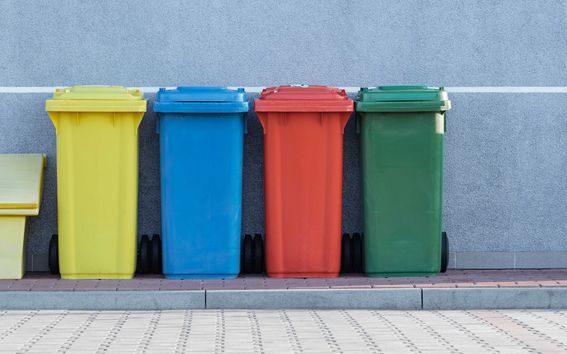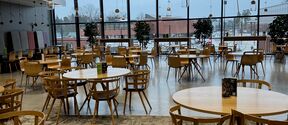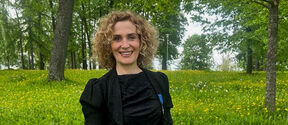Pilot for recycling plastic packaging waste to start at Aalto

“We want to take advantage of this chance to test out collecting plastic packaging waste, and to encourage sustainable development and recycling materials in general. We want to offer everyone using these buildings an easy way to do their part by sorting the packaging from their snacks and other plastic packaging in the separate plastic packaging waste bins”, says Satu Kankaala, Head of Business Development.
“Recycling plastic is a hot topic right now. Even though there’s still some uncertainty about how to handle the collection, we want to provide our personnel the opportunity to contribute to the efforts of sustainable development by recycling, for example, plastic packaging of ready-made meals. It's useful to note that we do not say recycling plastic but rather talk about recycling plastic packaging waste. Recycling opportunities are also increased by adding separate bins for cardboard waste at the same time. Both plastic packaging and cardboard have previously been sorted into energy waste bins at Aalto”, says Property Coordinator Tanja Pietikäinen.
The pilot will start in June at Otakaari 4 and Betonimiehenkuja 3 and 5. Separate waste bins for plastic packaging will be provided, and from these bins the waste will be taken to Fortum’s Plastic Refinery. Recycled plastic is used to make watering cans and other plastic garden products, for example. The pilot will be ongoing until the end of 2019, after which it is planned to expand the plastic packaging collection to cover the whole campus area.
For further information, please contact:
Aalto CRE/Tanja Pietikäinen, tanja.pietikainen@aalto.fi
Read more news

A Bloc becomes a “living lab” for Aalto students: Entrepreneurial Futures course and Cafetoria join forces in pop-up collaboration
A Bloc’s pop-up space turned into a hands-on learning environment when Entrepreneurial Futures course and Cafetoria co-created a pop-up.
Learning Lounge offers more study space on campus
Student, having a hard time finding a space?
‘My entire career as a marine biologist and sustainability scientist has been extremely interesting’
Professor of Practice Eeva Furman has spent most of her career conducting interdisciplinary research in sustainability sciences






